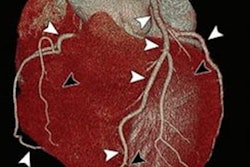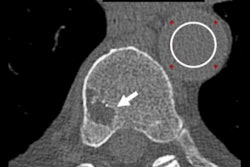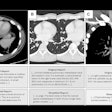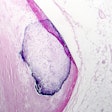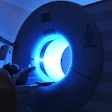
Photon-counting CT shows promise for better diagnostic performance compared to conventional CT, according to research presented on Sunday at the RSNA 2021 meeting.
"It has the potential for better contrast and noise performance compared to scintillator-based energy integration detector [CT]," presenter Richard Thompson, PhD, of Canon Medical Research Institute USA in Vernon Hills, IL, told session attendees.
Thompson and colleagues conducted a study using a phantom to compare image quality between a prototype photon-counting CT device and a conventional CT system, analyzing for noise, spatial resolution, and accuracy.
The photon-counting prototype was based on a Canon Aquilion One Vision system. Its smallest detector pixel size is 342 µm; each pixel produces measurements of up to six energy bins starting from 20 keV, Thompson said. (Photon-counting detectors generate energy-specific images that are assigned to energy bins in small ranges.)
The investigators scanned a 40-cm water phantom and Sun Nuclear's Gammex multienergy phantom with both the photon-counting prototype and the conventional scanner, comparing both counting and spectral images. The photon-counting CT device produced images with 20% to 25% reduced noise compared to conventional CT and had higher spatial resolution, from 0.60 lp/mm for conventional CT to 0.69 lp/mm for the photon-counting device.
"The initial performance of this prototype photon-counting CT system in both counting and spectral imaging modes demonstrates its potential to achieve better diagnostic performance with reduced dose," Thompson concluded.






